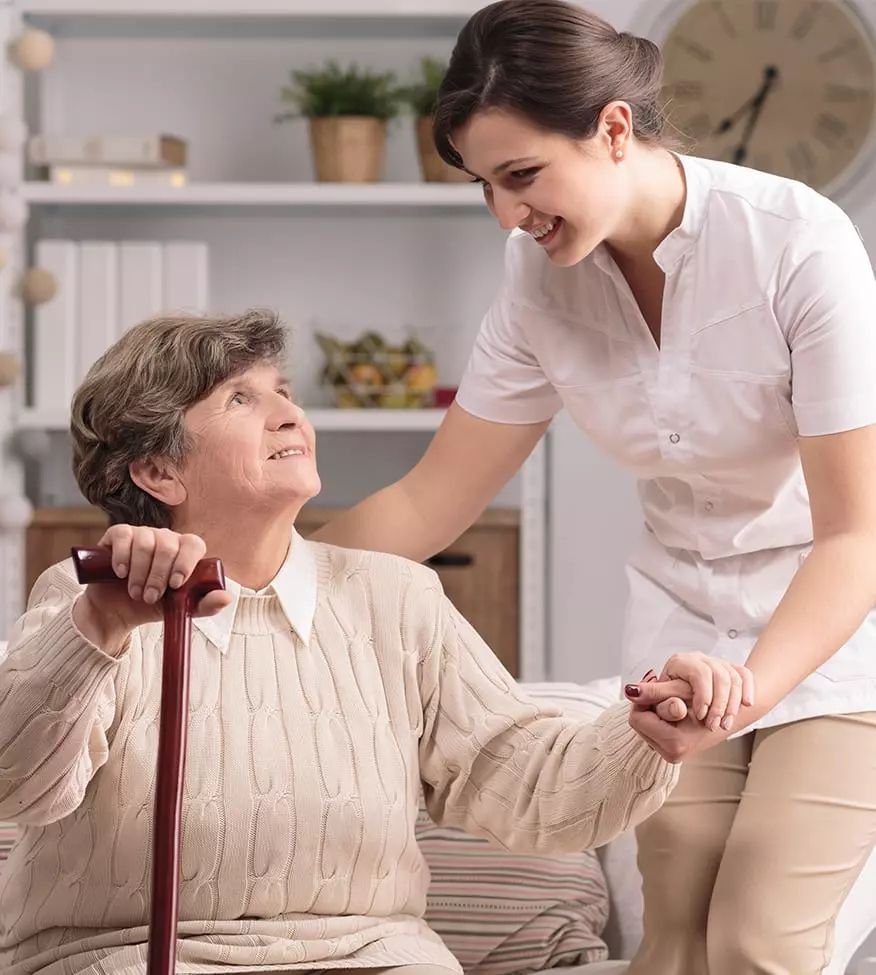If you are considering private care at home, you may want to understand the duties and responsibilities of a carer. We look at what you can expect your carer to do when they come to help.
What are the responsibilities of a professional carer?
With 1.6 million people working as carers in the UK, this makes them a larger industry than the NHS. Therefore, you may wonder what a professional care assistant does and how it differs from other types of care.
According to medical think tank research, around 4/5 of professional carers are female. For those working in direct support roles, rather than those who provide ancillary or managerial support, this female share of the work rises even higher, peaking at around 95%.
These direct support roles account for the vast majority of personal care work, with around 25% of care services being administration support, occupational therapy, nursing or social care workers. Most care assistants are qualified to at least NVQ level 2 or above, with a tiny 7% having no qualifications at all.
Who do professional carers support?
At its most basic level, carers provide physical and emotional support to those who need assistance when living independently. This is an overly simplistic view, and while it is easy to sum up the role, the tasks involved can vary widely.
One type of care a professional may be required to perform is respite care. This involves taking over the duties of another carer or family member who is supporting someone. Respite care allows the person providing support to take some time for themselves, leaving their duties for a few hours or a day or two.
Other personal care duties could include visiting someone recovering from an illness or injury, helping them manage their new limitations.
At the far end of the scale, we have 24-hour, live-in care, where a carer will move into their client's home to support them around the clock. This is mainly done for individuals who have advanced and complex conditions who cannot look after themselves properly.
While most people who need care are generally older adults, anyone who cannot care for themselves when living independently can benefit from additional support. From assisting a family with a sick relative to providing comfort and companionship, anyone can benefit from the assistance of a carer.

Care assistant skills and qualities
One of the key skills and qualities that a professional care assistant needs are to be practical and experienced enough to deal with any issue that their clients may need effectively. Alongside this, a professional carer must have a great sense of discretion. Given the intimate nature of the duties they are required to perform, ensuring their clients can hold on to their dignity is a number one priority.
Professional carers must also have a clear criminal history. Enhanced DBS checks are an essential test for anyone who wishes to work in the care industry. Given that carers are expected to go into people's homes to support them, it is vital that they can be trusted and can maintain a flawless criminal record.
Carers must also be personable and friendly, with excellent communication skills. Being able to relate to people and sympathise with their conditions is crucial while having a good sense of humour will help clients feel comfortable. Regarding companionship services, a clients relationship with their carer may be the only human interaction they get. Therefore, professional carers must form bonds of trust and friendship with the people they support.
Some carers may specialise in end of life care for patients who require palliative care.

Duties and responsibilities of a live-in care assistant?
Live-in carers remain with their clients 24/7 over a set timescale. This timescale can be anywhere from a couple of weeks to a few months, depending on the client's care needs and the carer's ability.
Although the carer is living with their client around the clock, they will only be expected to provide 8 hours of dedicated care per day.
When they are not performing these eight dedicated hours, the carer may take leisure time, whether sleeping or relaxing, but still on call when their client needs them.
Outside of this, every carer gets at least a 2 or 3-hour break each day where they do not have to be on call for their client. This ensures that they can maintain their own lives outside of their work.
The duties of a live-in carer vary depending on the specific needs and medical conditions of their clients. Average live-in care duties might include assisting with basic chores around the home, shopping for groceries and preparing meals. More intimate duties will include helping with ablutions and toileting.
Some patients may require palliative live in home care.
A carer may also be required to assist their client with exercise, depending on their medical and physical limitations. Carers should also have basic first aid training in case of emergencies.
Examples of Care Assistant responsibilities
Some examples of care assistant job responsibilities include:
Conducting general household chores, including dusting, vacuuming and laundry.
Helping their clients with washing, dressing, toileting and general ablutions.
Transporting and accompanying their clients to appointments and meetings.Mobility assistance, including bedtime routines.
Overseeing medication routines and collecting prescriptions.
Promoting a healthy social life, taking clients to local clubs or meeting friends and family.
Monitoring their client's physical, emotional and mental health, reporting any significant changes to senior care staff.

Who decides what a professional carer does?
The clients, their family members, and their doctors will determine what services a professional carer will perform for someone. Of course, the carer themselves will also clarify which duties they are willing or qualified to carry out.
When you contact a care agency to arrange a carer for yourself or a loved one, they will do their best to find a perfect match for your needs. They will conduct an assessment to discover exactly what care and support are needed and find a carer on their books to carry out these tasks.
If you have questions about the duties and responsibilities of a carer, we hope this information has been useful to you.
We offer specialist home care services and live-in care for vulnerable adults throughout London. Get in contact today if you have a loved one that would benefit from professional care at home.

